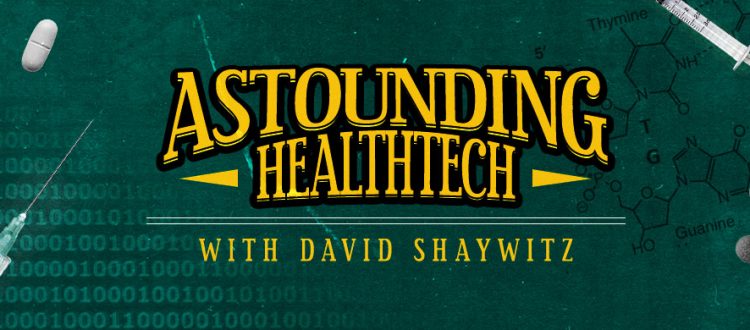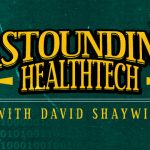The Future of AI and Health, Part III: Improving Health By Enhancing Agency

David Shaywitz
Part II of this series is here
“Agency,” Harvard’s Zak Kohane and I agree, is the word of 2025.
Kohane’s reasoning: “Patients understand how to increase their agency in their disease journey with often correct and thoughtful instant second opinions from AI.”
This perspective aligns with the opportunities described by A16z VCs Vijay Pande and Marc Andreessen, as discussed in Part II.
Agentic AI
While I’ll focus on human agency, it’s important to acknowledge that agency is also showing up everywhere in connection to generative AI technologies (although Kohane says “the agency of computational entities is less of a quantum leap by comparison”).
What’s excited the AI community are “AI agents” or “agentic AI” — AI-enabled tools that can perform a series of tasks with far greater flexibility than traditional, rule-based automation approaches.
As data scientist Sahin Ahmed explains in a January 2025 Medium post, AI agents are:
“emerging as a significant force driving the next wave of technological innovation. AI agents are autonomous systems capable of perceiving their environment, making decisions, and taking actions to achieve specific goals. This burgeoning field is experiencing rapid growth, with the AI agents market projected to soar from $5.1 billion in 2024 to $47.1 billion by 2030.”
AI agents may also be useful in health and science. Kohane’s (and my) colleague in Harvard’s Department of Biomedical Informatics, Marinka Zitnik, along with her co-authors, published a visionary Perspective in Cell late last year offering a bold framework for “Empowering biomedical discovery with AI agents.” Such agents, the authors suggest, would work alongside human scientists, enhancing their abilities.
This is where I get particularly interested – the opportunity, in the broadest sense, for technologies to enhance human agency.
Human Agency
The idea that technology, particularly AI, can expand our agency is the central thesis of Reid Hoffman’s latest book, Superagency, which I recently reviewed in the WSJ (here).
Agency – including the power of individuals (with a lot of luck) to shape the course of history, and our obligation, in the face of ambiguity, to try our best rather than shrug our shoulders – is also an important theme of several upcoming books I’ve read for review (stay tuned).

Martin Seligman, Zellerbach Family Professor of Psychology, University of Pennsylvania; Founding Director, Positive Psychology Center
Perhaps the most comprehensive perspective of human agency has been developed by University of Pennsylvania professor Martin Seligman, the father of positive psychology, whose work I’ve discussed for TR readers here in May 2021 and here in December 2021.
As Seligman explained in a 2021 talk at the MIT Media Lab (video here), his entire career has focused on the importance and plasticity of agency, which he says boils down the belief, “I can make a positive difference in the world.”
In an ambitious 2021 “psycho-historical” paper making the audacious argument that agency is responsible for human progress, he writes,
“When do we try hard? When do we break out of our sloth and overcome barriers that seem insurmountable? When do we reach for goals that seem unobtainable? When do we persist against the odds? When do we make new, creative departures? These all require Agency, an individual’s belief that he or she can influence the world.”
Agency has three components, he says:
- Efficacy – I can achieve a specific goal in here and now;
- Optimism – I can achieve this specific goal now just now but also far into the future;
- Imagination – I can achieve many goals far into the future.
Historically, Seligman says, the field of psychology focused on misery.
“Freud and Schopenhauer told us that the best you could ever do in life was not to be miserable. So a successful life held suffering as close to zero as possible. There was no theory of well-being.”
His own initial work focused on depression, and he is perhaps best known for the “learned helplessness” model of this condition.
Over time, as he recognized resilience even in people facing difficult situations, he decided that he was wrong about the learned helplessness model. Helplessness is our default reaction, he concluded, and what can be learned is hopefulness and optimism.
He subsequently founded the field of positive psychology which he describes as “the generalization of optimism.” He introduced the “PERMA” framework, composed of five different, buildable elements, as discussed in TR here in May 2021.
Critically, he says, “having PERMA is causal.” It’s not that being successful makes you happier. Citing longitudinal studies, and alluding to evidence-based interventions, he says “happy people are healthier, they live longer, they have better social relationships. They’re more productive at work. They’re better citizens. They’re more creative. And they’re more resilient.”
Referencing what he describes as an extensive literature, Seligman argues that “people who have high agency are physically healthier,” adding “If you look at people with high agency holding constant the traditional risk factors, they live on average 6-8 years longer,” compared to people with low agency.
He continues, “Optimistic people — people who believe that they can control things far into the future, bounce back. They resist depression. They succeed. They try harder and give up less at school.” They do better in college than their SATs predict, he says, and do better at work. In contrast, “pessimistic people are less productive than their talents predict.”
From a health perspective, he says “about 20 well-done studies” have shown that after accounting for “the usual risk factors,” it turns out that “being in the bottom quartile of pessimism is roughly equivalent to smoking 2-3 packs of cigarettes a day for longevity. “
Critically, he believes agency is teachable. Positive psychology, he argues, tells us “how to build efficacy, how to build optimism, and a little bit about how to build imagination – although if someone tells you they know how to build creativity, hold on to your wallet; that’s unknown.”
Seligman contends the way to build agency has been “well-defined,” adding “there are a couple of hundred articles on exercises that build agency and well-being.”
He explains one approach, often referred to as “cognitive restructuring,” involving recognizing “the most catastrophic things you say to yourself when things go badly and then to dispute them realistically.”
He continues,
“So if you’re rejected by your girlfriend, you have to be conscious that you’re saying, I’m unlovable, you’ll never find love again. And then we teach people to realistically dispute their most catastrophic beliefs, treat them as if they were said by a third person whose mission in life was to distort reality and to make you as miserable as possible.”
So far, this all sounds really promising.
However, in my reading, data demonstrating that positive psychology (“pro-agentic”) interventions meaningfully improve health are, most generously, a work in progress.
The field has been dogged by methodological issues like consistency in both approaches to interventions and approaches to measurement, as discussed by Feig et al in 2022, here, and by Kubzansky et al in 2023, here.
“The existing literature is limited by small sample size, low study quality and inconsistent intervention content and outcome measurement,” Feig writes.
So where does this leave us?
Foundationally, I suspect Seligman is right about the centrality of agency, about its power and importance, and its role in enabling us, as individuals and collectively, to live better, healthier, more meaningful lives.
I am also excited by the promise of technology to help us build and enhance our sense of the agency Seligman describes, while recognizing the need for more persuasive data linking agency-enhancing interventions to meaningfully improved health.
I’m particularly drawn to the health-promoting opportunities I see at the intersection of interventions seeking to enhance agency and interventions that seek to encourage movement (a priority discussed in TR here in November 2021). Imagine the promise of a fitness platform (like Peloton or Tonal), device (Whoop, Oura, Apple Watch), or app (Strava, All Trails) if supercharged by deliberate, PERMA-informed efforts to enhance our sense of agency. (The alignment of the Timmerman Traverse with these goals has not escaped TR’s notice.)
Data ≠ Agency
One important caveat here is to the ensure we’ve learned a critical lesson from the tribulations of the early quantified-self movement (see my TR discussion here from April 2021): simply measuring or tracking data doesn’t necessarily lead to insights or improvements.
As former quantified-self enthusiast and Wired editor Chris Anderson famously tweeted in 2016, “After many years of self-tracking everything (activity, work, sleep) I’ve decided it’s ~pointless. No non-obvious lessons or incentives 🙁”
The point here is that, generally speaking, simply delivering us lots of data may not translate to meaningful improvements in either agency or health.
On the other hand, I strongly share the optimism of Goldberg, Kohane, and others that generative AI tools are already helping to empower patients and caregivers, a trend that (as Andreessen suggests, see Part II) will only continue.
One example highlighting both the potential and need was recently described in The Free Press: a writer’s mom, initially diagnosed with Alzheimer’s Disease, was subsequently discovered to have a reversible condition. It turned out her symptoms were caused by an occult leak of spinal fluid, which was identified and corrected. Her symptoms disappeared, her “life restored,” as the author put it.
While AI played no role in this story, it is the exactly the sort of unusual but transformative diagnosis that in the future, AI is likely to suggest.
Harried physicians – especially in the case of patients like in the example above, who are evaluated for a spectrum of symptoms by a range of doctors – tend to focus on the most common conditions, aligned with their specialty. If you see a pulmonologist for insomnia, she’s likely to suspect obstructive sleep apnea, obtain a sleep study, and recommend CPAP. In contrast, a psychiatrist may consider anxiety or depression and suggest cognitive behavioral therapy or a medication.
If you are a patient or a caregiver, it’s easy to imagine that an AI tool, uniquely, may have the patience to receive as much information as you are willing to offer; the ability to engage with you around the data you’re providing; and the insight (if that’s the right word) to integrate the totality of information and suggest potential diagnoses or at least next steps in a comprehensive manner, not biased by the specialty (or relative ignorance) of a given physician.
Finally, speaking of cognition and agency, an encouraging paper (originally flagged by Daniel Drucker) from Australia was recently published in Nature Medicine. This study demonstrated that the delivery of four on-line personalized interventions targeting established dementia risk factors (“physical activity, nutrition, cognitive activity, and depression/anxiety) to older people “resulted in significantly better cognition in older adults over 3 years.”
While an animated discussion around potential methodological issues flared in response to Eric Topol’s LinkedIn post about the study, the possibility of reducing dementia risk through online interventions is tremendous exciting, especially if you consider this is likely the beginning of an optimization process.
In the same way traditional combination medical therapies for conditions from HIV to cancer improved significantly through incremental advances (as I’ve discussed here), the establishment of a foothold for digital therapies might provide a meaningful starting point for future progress.
Bottom Line
We are living through a remarkably exciting time to pursue the promise of technology, especially AI, in health – even if no one really knows what this future will look like. The use of technology to enhance personal agency represents a significant opportunity, and through the consumer-facing tools of generative AI, is already reframing the patient/doctor relationship. The application of technology to develop and support our sense of efficacy and optimism – as well as to encourage us to move more – represents an area of exceptional interest and significant potential impact.





